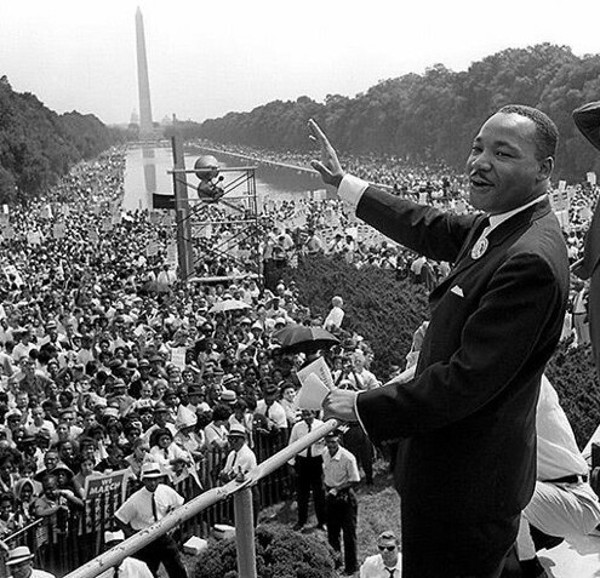
PHOTO/NATIONAL PARK SERVICE
Dr. Martin Luther King, born January 15, raised this question in a 1967 speech: “Why are there forty million poor people in America?” When you ask that question, he said, “You are raising a question about the economic system, about a broader distribution of wealth. When you ask that question, you begin to question the capitalistic economy. And I’m simply saying that more and more, we’ve got to begin to ask questions about the whole society.”
Only eight months after that speech, Dr. King was assassinated while supporting striking Memphis sanitation workers. He was shot one year to the day after speaking out strongly against the war and militarism, tying them closely to issues of poverty.
At the time of his death, he was organizing for a massive Poor People’s Campaign gathering in Washington, DC. This moral outcry against poverty, militarism, and racial and gender discrimination called for $30 billion to fight poverty and for constructing 500,000 affordable places to live every year. Though Dr. King didn’t reach the goals he worked for, his message still guides us today.
Fifty years after the first Poor Peoples Campaign, 140 million people in the U.S. are poor or one $400 emergency away from being poor. The new Poor People’s Campaign: A National Call for Moral Revival points out that, 43.5% of people living in the richest nation in the world—representing every race, color, creed, religion, sexual orientation, and political party—don’t have enough secure income to meet their basic needs.
Groups across America are organizing to raise the urgent need to end poverty now. The new Poor People’s Campaign is currently conducting a 22-state organizing tour, preparing for a Mass Poor People’s Assembly and Moral March on Washington on June 20, 2020.
In America today, millions are taking up the struggle that Dr. King gave his life for.
Millions take up the struggle for which King died
Latest
Free to republish but please credit the People's Tribune. Visit us at www.peoplestribune.org, email peoplestribune@gmail.com
The People’s Tribune brings you articles written by individuals or organizations, along with our own reporting. Bylined articles reflect the views of the authors. Unsigned articles reflect the views of the editorial board. Please credit the source when sharing: ©2024 peoplestribune.org. Please donate to help us keep bringing you voices of the movement. Click here. We’re all volunteer, no paid staff.

